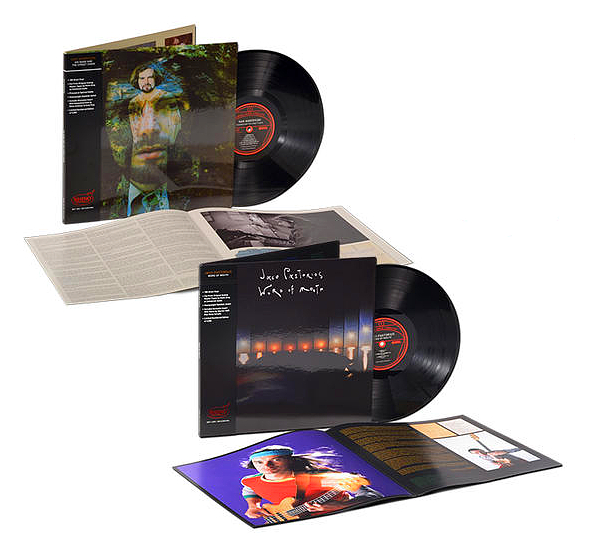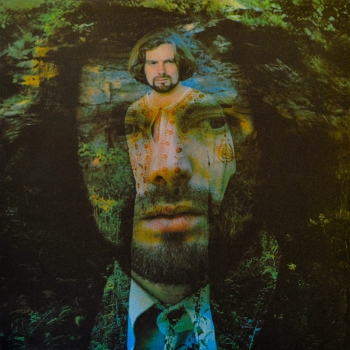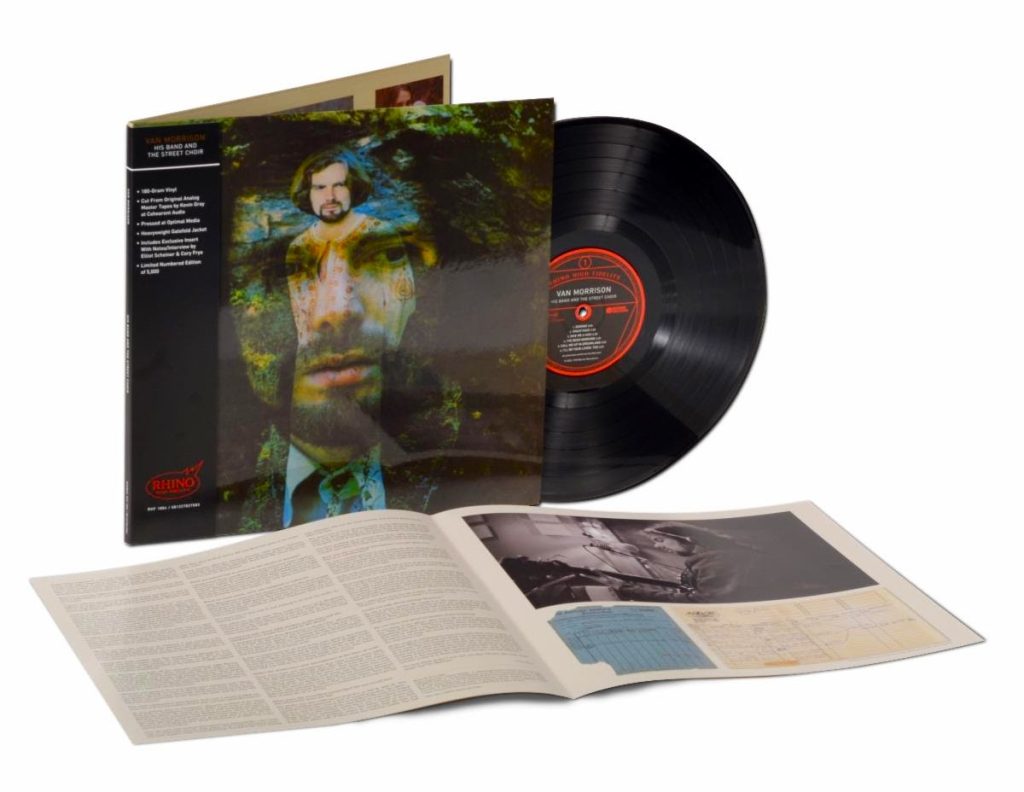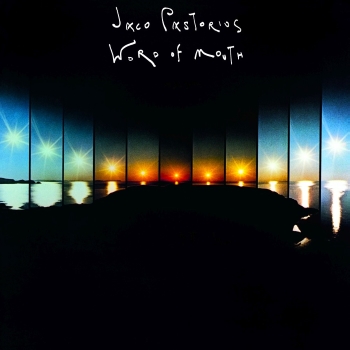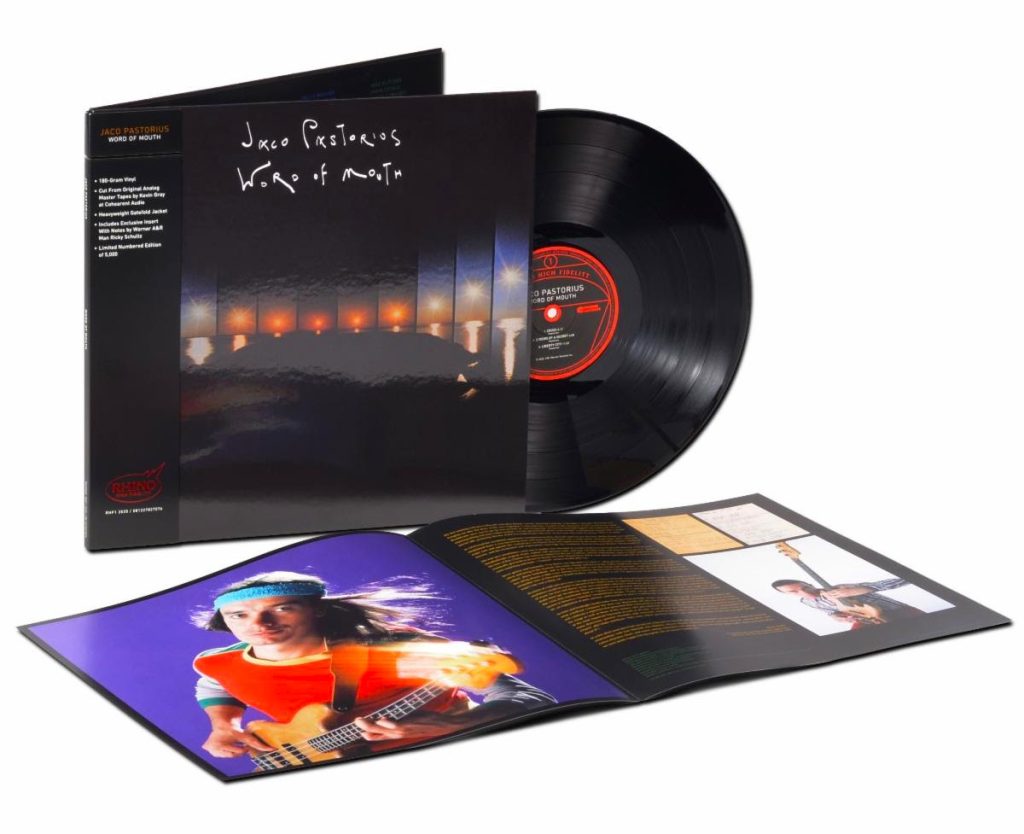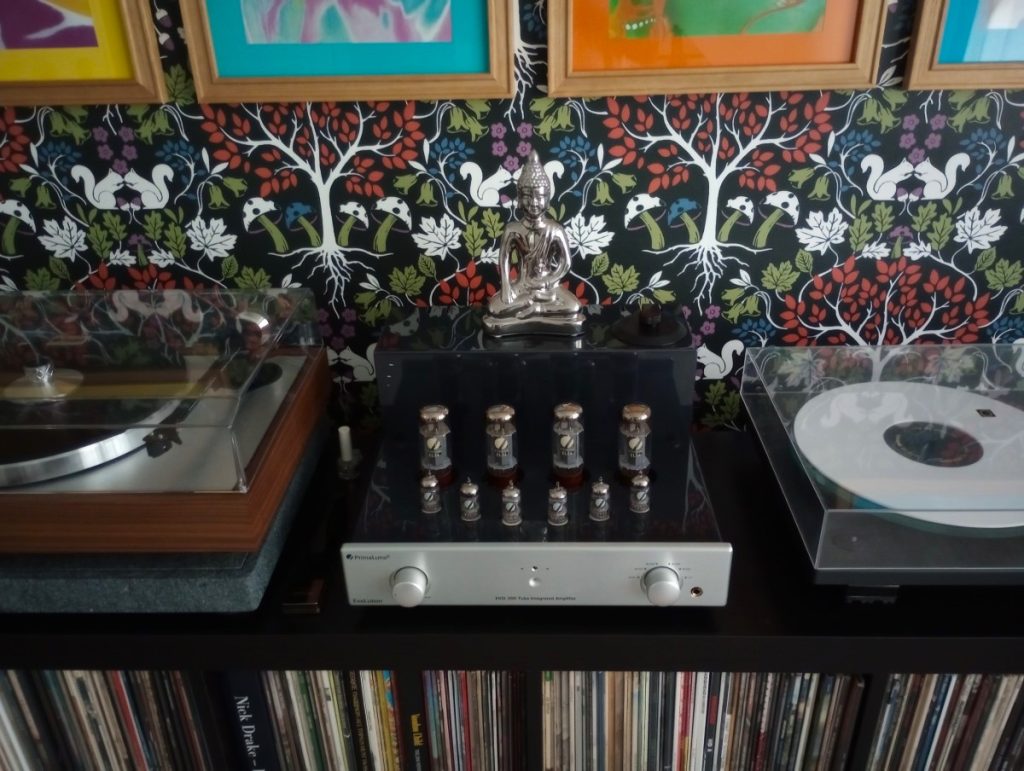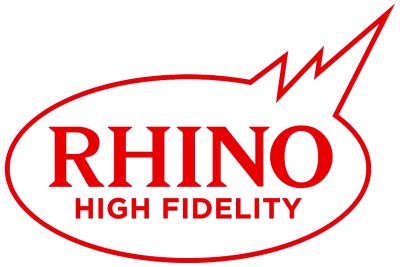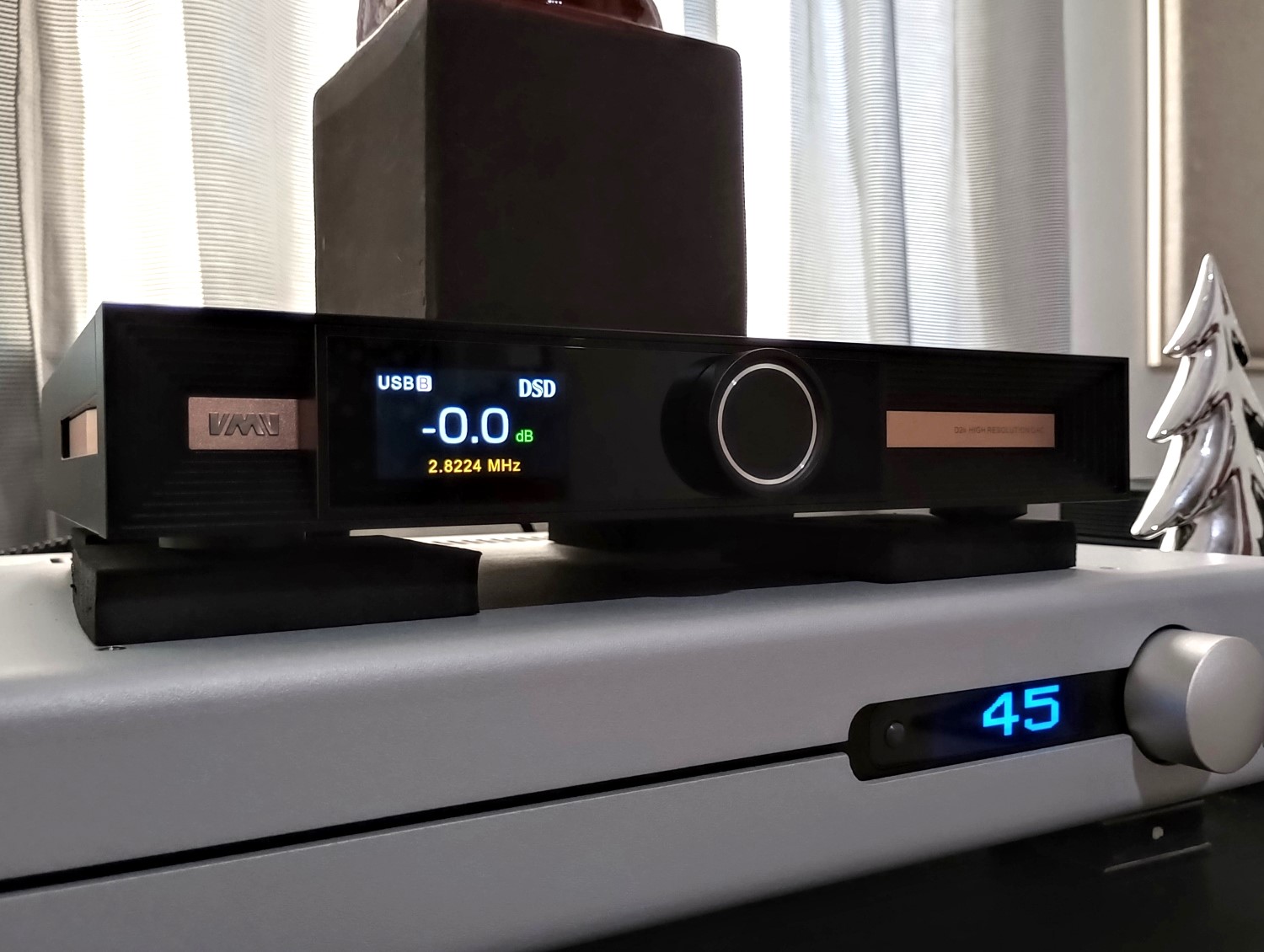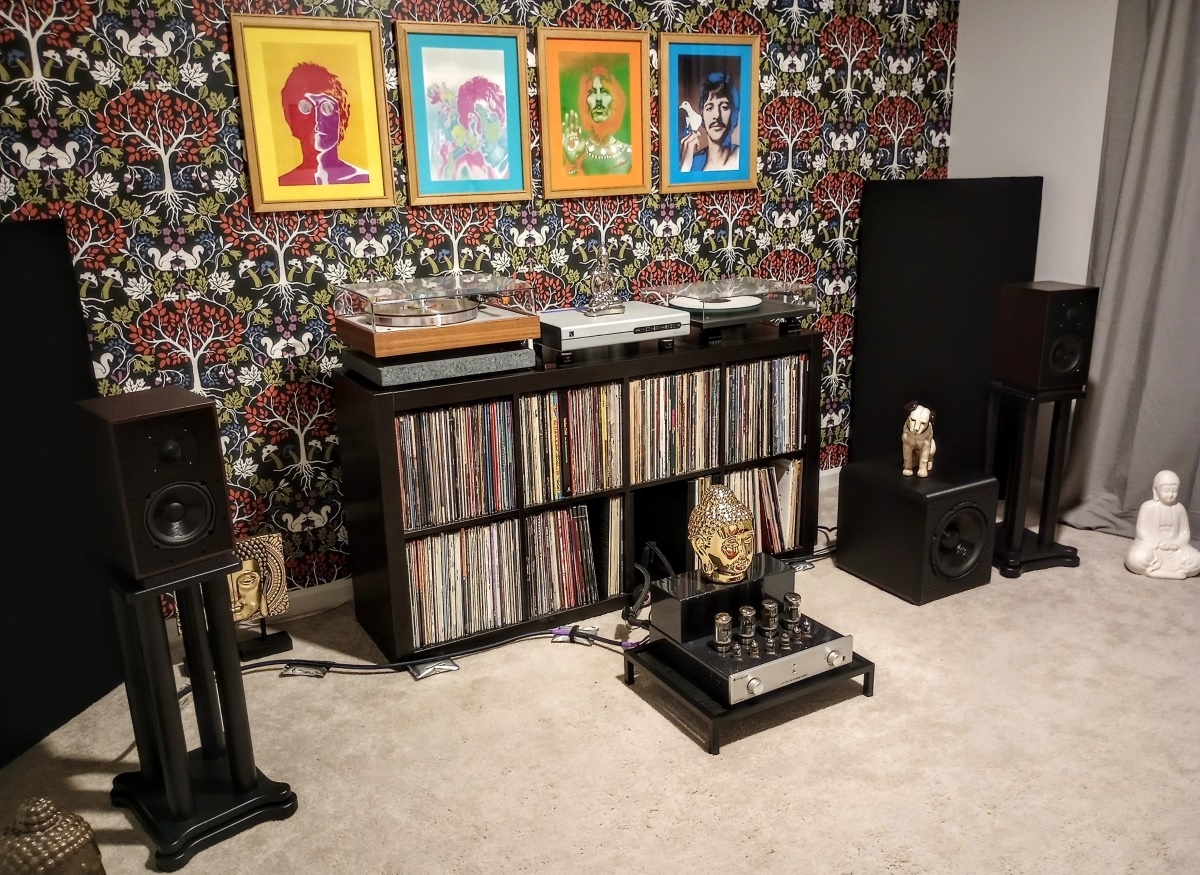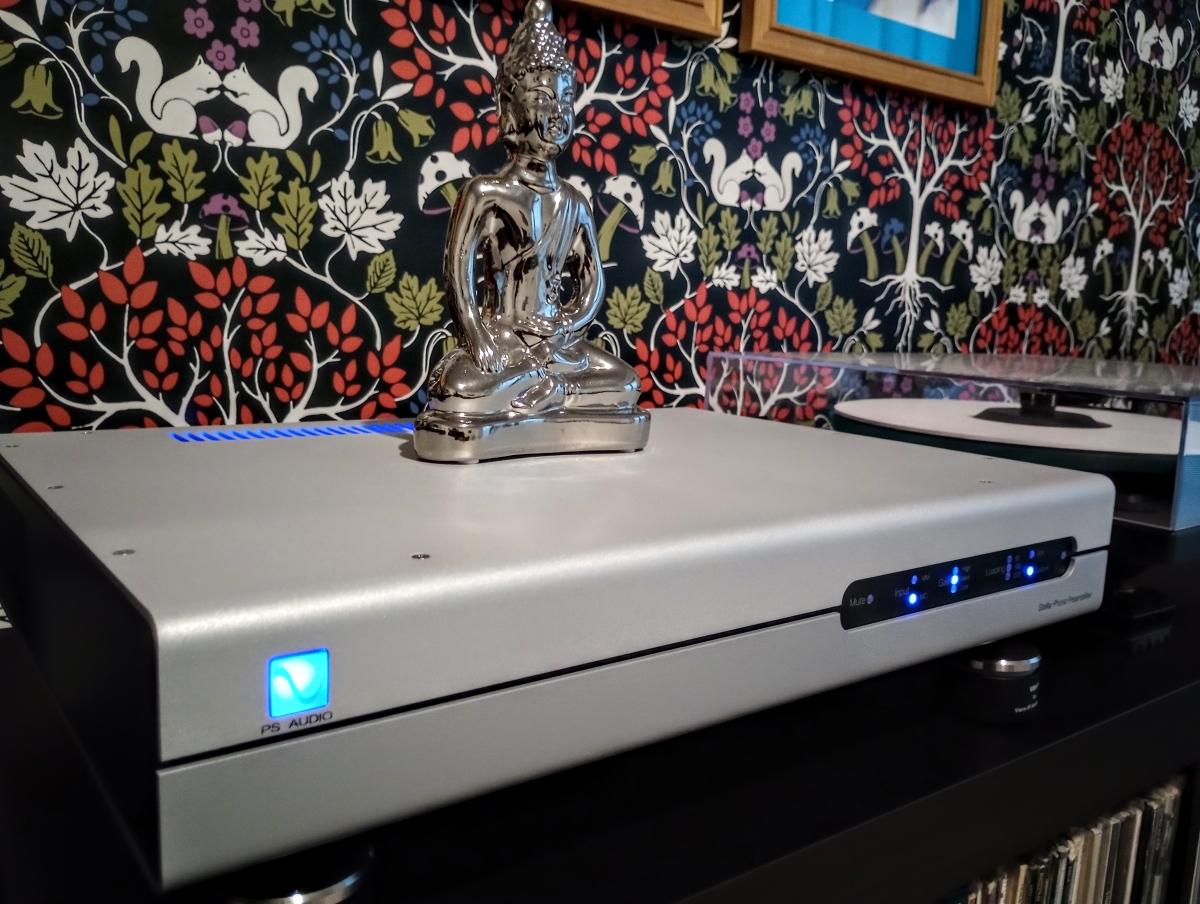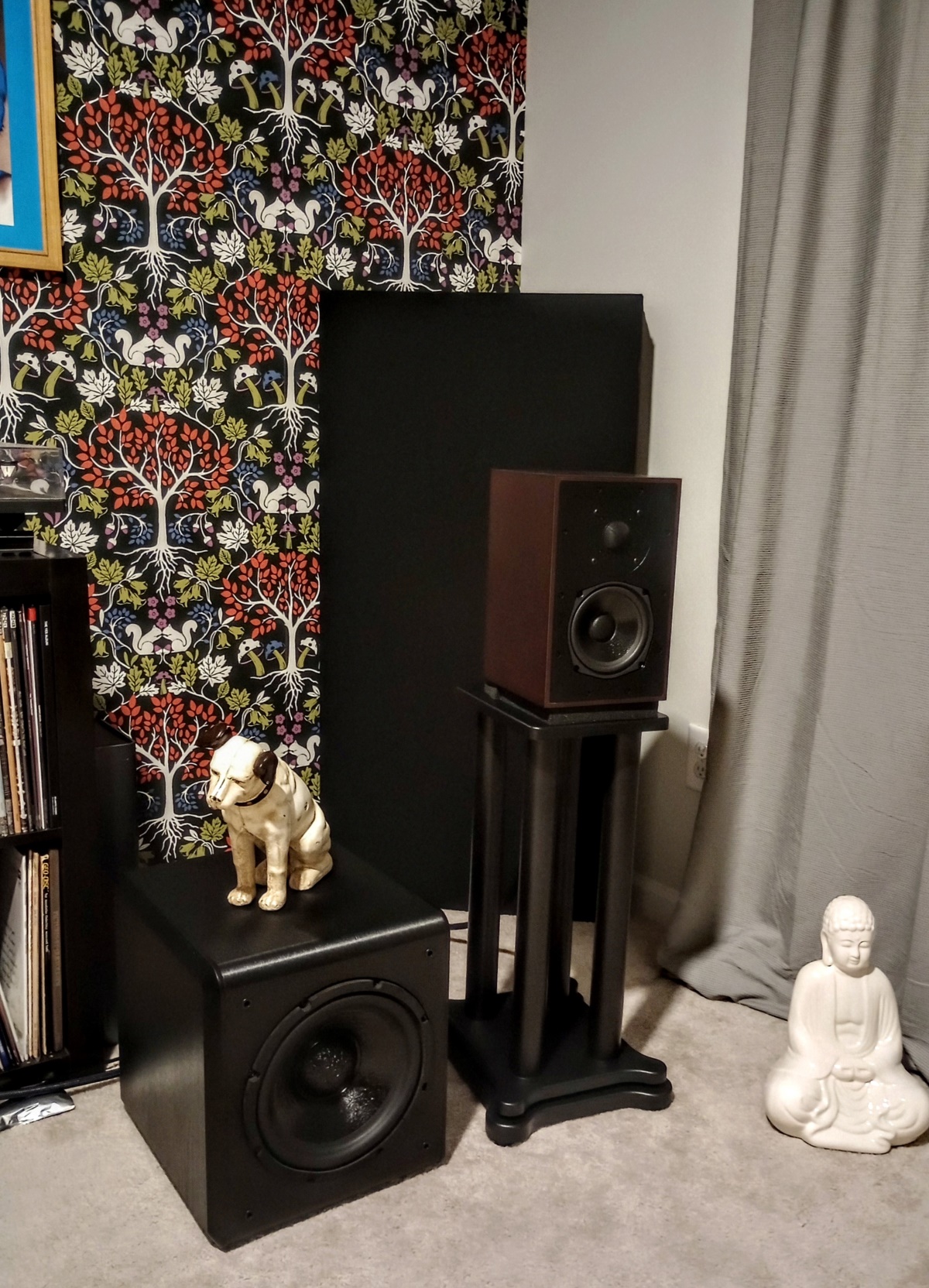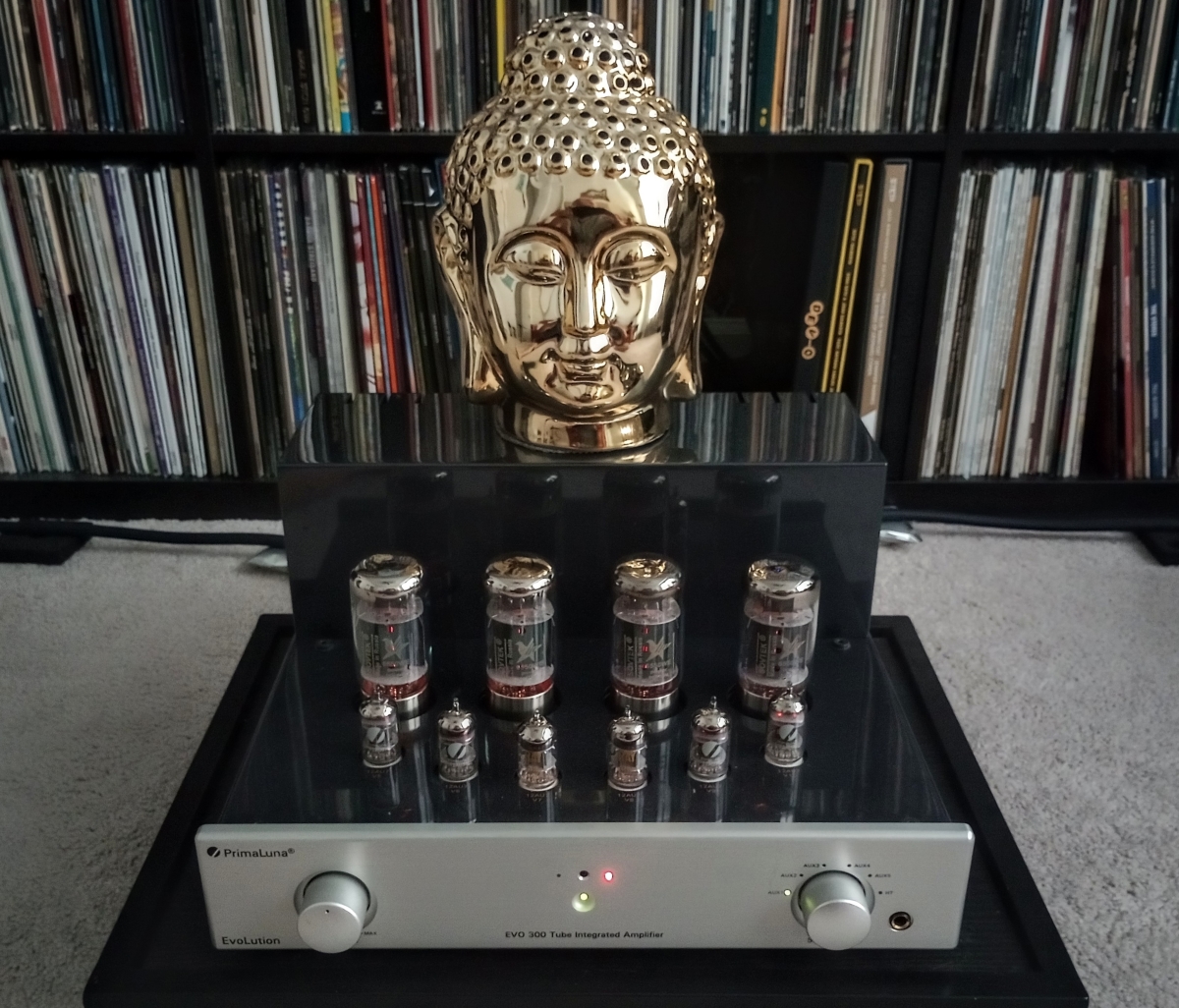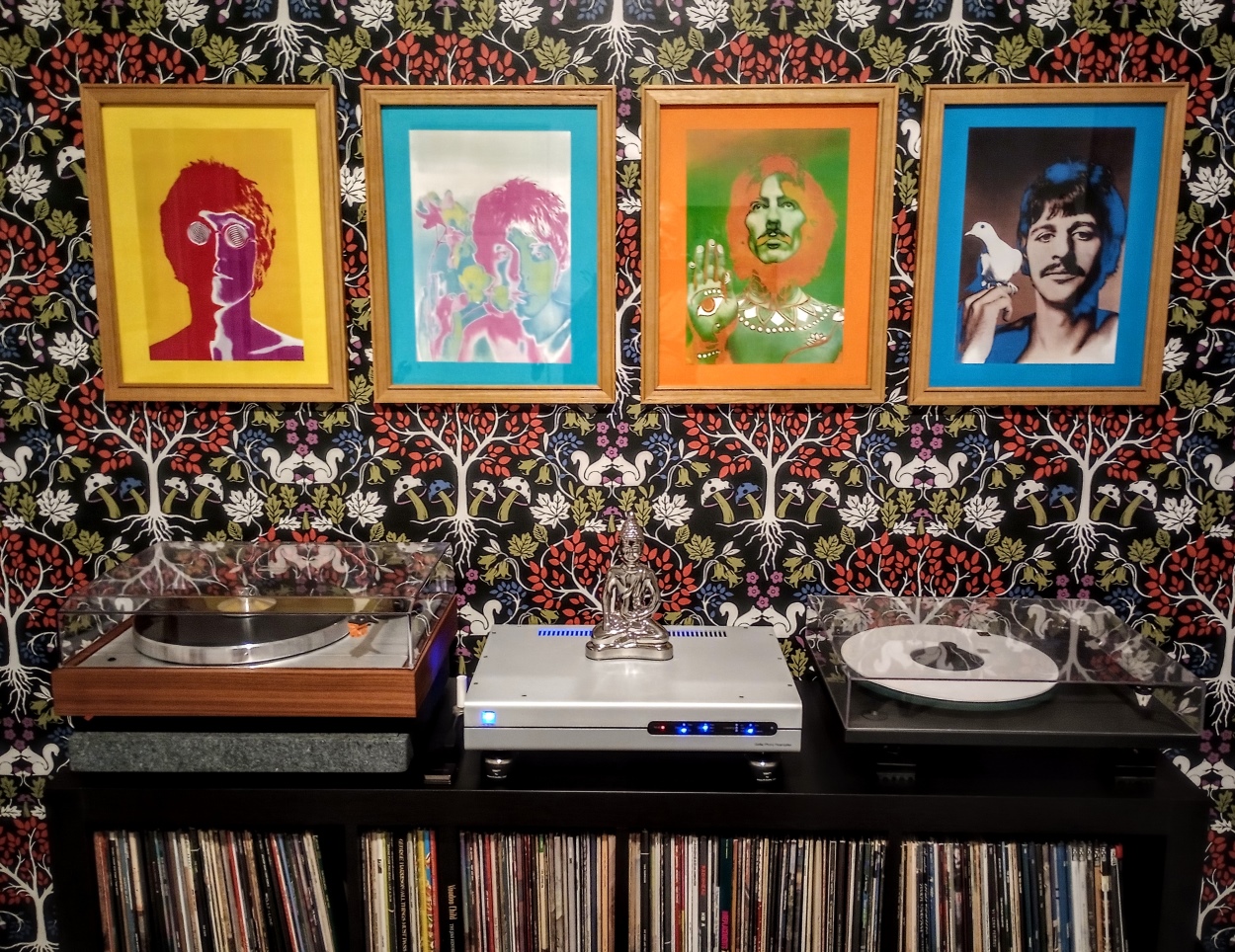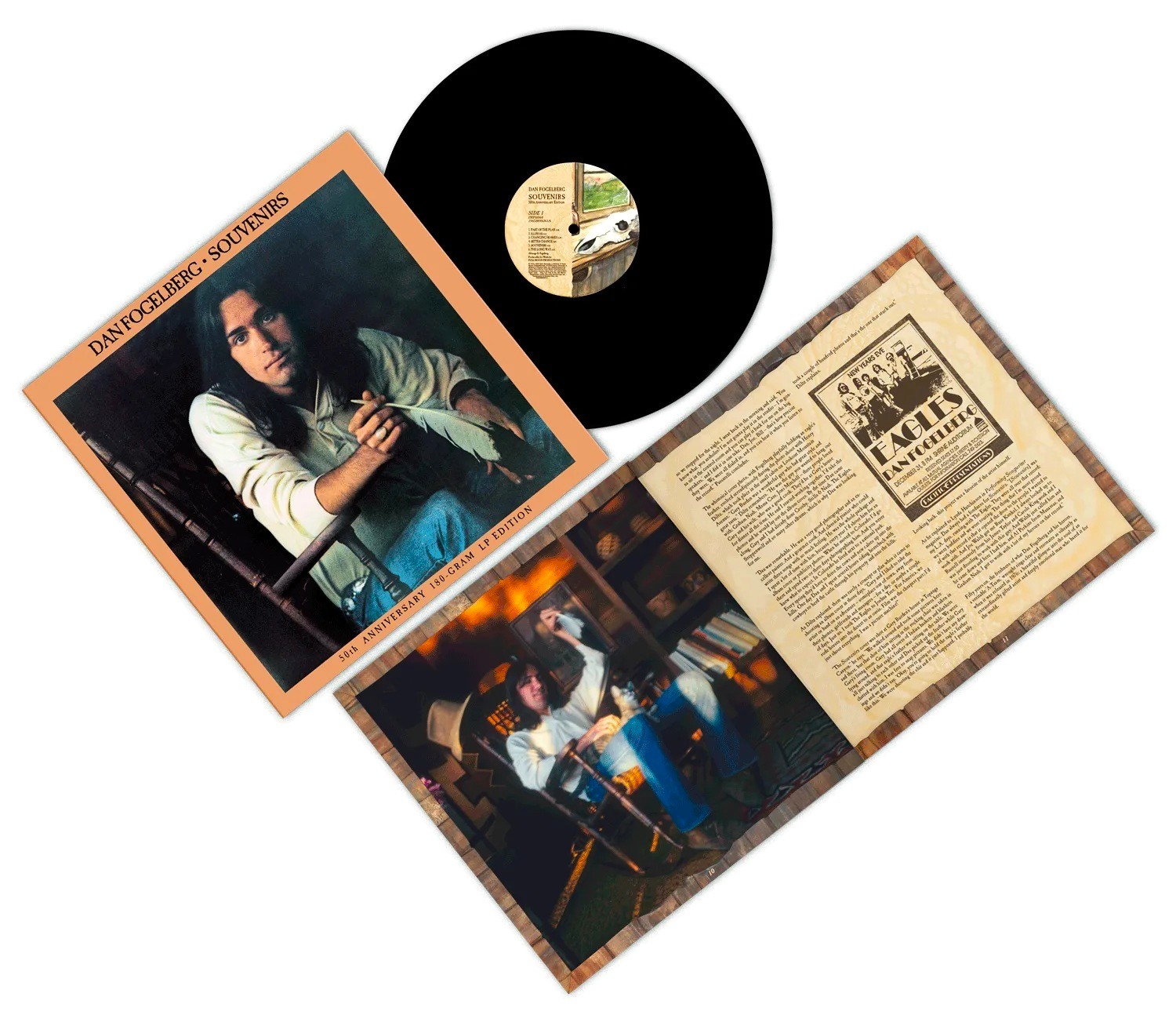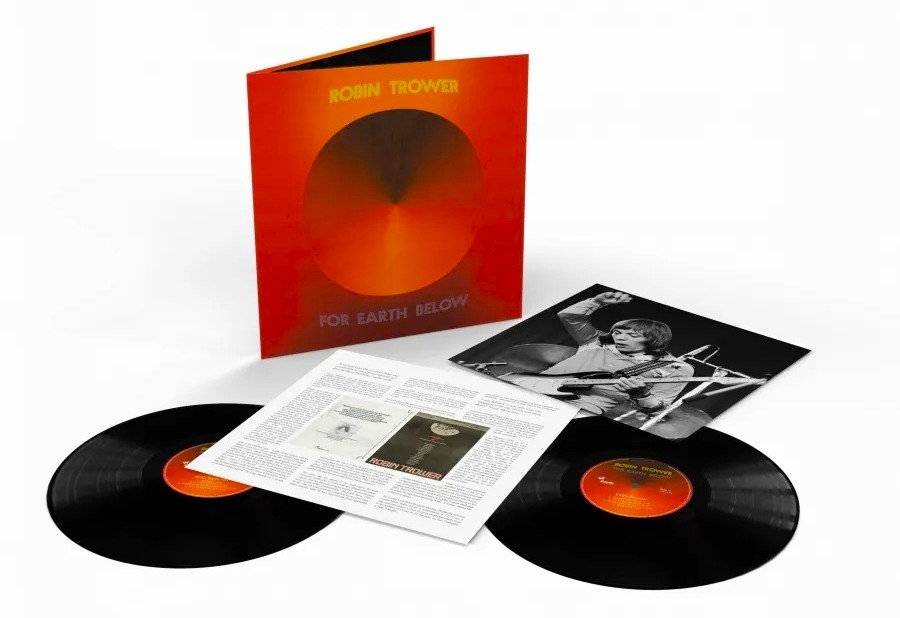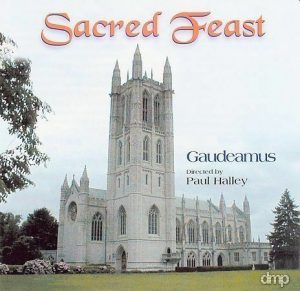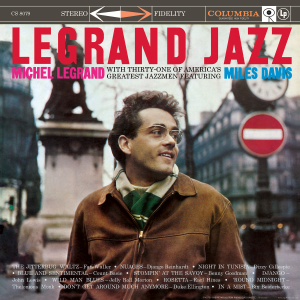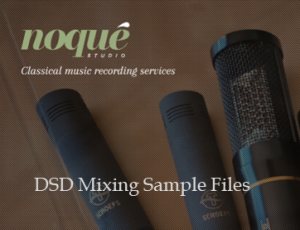Shore Fire Media has announced the next two titles in the Rhino High Fidelity Premium Vinyl Series, and as with the first offering, I'm fairly surprised by the selections. Which are Van Morrison's fourth studio album, His Band and the Street Choir (1970, Warner Brothers), and Jaco Pastorius' sophomore solo effort, Word of Mouth (1981, Warner Brothers). So once again, Rhino has paired a classic rock album with a jazz—or at least, jazz fusion—album. Formulaic? Perhaps, but Rhino elevated the bar to such a lofty position with the first batch of reissues, the expectations are pretty high for the current crop. These exclusive 180 gram LPs are only available from rhino.com, and can be ordered HERE.
The new Rhino High Fidelity series continues to build on the label's legacy of sonic goodness. Both of these excellent LP reissues arrived in heavy, tip-on, Stoughton-style jackets that are very faithful to the originals. Each album package is beautifully realized and features a stylized OBI strip that enhances their appearance and collectibility. The jackets feature a high gloss coating that highlights the crisp original album artwork that's been sourced from the Warner Brothers archives, and a new (but classic-looking) LP label design has been created for the Rhino High Fidelity imprint. These are truly beautiful LP reissues!
The LPs were cut from the analog masters by Kevin Gray at Cohearent Audio, and the 180 gram LPs were pressed at Optimal in Germany. The surfaces of the flawless LPs were exceptionally glossy, and were inserted into their jackets in rice-paper lined, black paper inner sleeves, which is a very nice touch. Removing a new LP from its sleeve without resistance is always a great feeling, especially when there's no trace of paper dust or static build-up.
Van Morrison, His Band and the Street Choir. 180 Gram LP, $39.98 MSRP
Van Morrison's fourth overall studio release, and third for Warner Brothers, His Band and the Street Choir, was recorded between March and July 1970, and was released later that year in November. The working title (and Morrison's intended designation for the album) was Virgo's Fool, but due to a production snafu and unbeknownst to Morrison, the name was changed to His Band and the Street Choir. Van Morrison was fairly miffed by that upon the album's release, as well as by how the studio sessions had progressed. His original vision was to work with a group of acapella singers he'd named the Street Choir, and that their vocals would provide his sole backing on the album. The record label execs didn't share his enthusiasm, and insisted that the songs also include a rock band in addition to the Street Choir. The Street Choir, as Morrison originally envisioned it, consisted of vocalists Dahaud Shaar, Larry Goldsmith, Andrew Robinson, and Van Morrison's wife, Janet "Planet" Rigsbee.
This core group of singers had produced the demos for the album at a small church in Woodstock, New York, but Morrison was convinced to add a couple of additional female vocalists during the album sessions. He was greatly dissatisfied with the results, which strayed too far from his original vision for the sound of the record. Sometime around that point, musicians from the Moondance sessions were also brought into the studio, and the album's lead single, "Domino," got an early release and was getting lots of airplay. With its significant traction on the singles chart, it was decided that the album's release date would be pushed up to maximize sales during the upcoming Christmas season. The pressure of that decision led to certain production errors with the packaging—including the album's title—where a miscommunication resulted in it being named His Band and the Street Choir. Janet Planet designed the cover and wrote the original album notes—another aspect that Van Morrison wasn't entirely happy about. He felt the album's photography and entire vibe made him look too much like a hippie, an image he most definitely didn't espouse.
Despite everything, His Band and the Street Choir was a commercial success, with sales propelled by the continuing chart presence of "Domino." The album received mixed critical reviews, generally because the songs weren't considered to be as lyrically strong as on Moondance. All of this combined to leave Van Morrison with a less than favorable impression of the record, at least at the time of its release. Not having owned a copy of this record prior to now, I can understand to a certain extent where Morrison was coming from—His Band and the Street Choir strikes me as a bit disjointed, even though it contains a number of classic songs. You couldn't turn on a radio in 1970 without hearing "Domino"—and usually several times a day. And the local AOR radio station played "Blue Money" almost as frequently, but I was still very smitten with the songs from Moondance, and never pulled the trigger to purchase Street Choir.
There are at least three other standout tunes on the album, especially "I'll Be Your Lover, Too," "Gypsy Queen," and "Sweet Jannie," which are all remarkable examples of Van Morrison's artistry. But having read his complaints about how his "Street Choir" concept was tampered with by the record label, I can easily see his disappointment with the album. But I can also hardly see how Morrison's original "Street Choir" concept would have worked at all; the album seems less cohesive, with poorer subject flow than its predecessor, Moondance.
Jaco Pastorius, Word of Mouth. 180 Gram LP, $39.98 MSRP
Word of Mouth was bassist Jaco Pastorious' second studio album, and his first for Warner Brothers Records. Pastorius worked on the album on-and-off throughout 1980 and 1981, and in multiple studios across the country while still a member of Weather Report. Its release came on the heels of his departure from the band; keyboardist, principal composer, and band leader Joe Zawinul was becoming agitated by Pastorius' increasingly erratic behavior and wild onstage antics, which he felt distracted from the music. Word of Mouth, in addition to being the album's title, was also the name of the big band Jaco Pastorius assembled and toured with post-Weather Report from 1981 - 1983. Whereas his self-titled first album, Jaco Pastorius (1976), focused on his astonishing technique with the fretless bass guitar and his impressive writing for small combos, Word of Mouth showcased his abilities to compose on a larger scale for a more diverse complement of instruments.
The core group of players on the album featured Pastorius on fretless bass (of course!), Michael Brecker, Tom Scott, and Mario Cruz on saxophones, Chuck Findley on trumpet, John Clark on French horn, and Howard Johnson on tuba. Don Alias and Robert Thomas Jr. played percussion, and Peter Erskine (who was also currently a member of Weather Report) played most of the drum tracks. Also making appearances were Herbie Hancock (keyboards and synths), fellow Weather Reporter Wayne Shorter (soprano sax), Toots Thielemans (harmonica), and Jack DeJohnette (drums). Because Jaco Pastorius had been under contract to Columbia Records prior to the start of the recording sessions for Word of Mouth, Columbia wouldn't allow any of the Columbia artists who appeared to be credited on the album. Pastorius reacted to this by refusing to credit anyone if everyone couldn't get their due; that resulted in the first 50,000 pressings of the record being delivered with no printed credits. Columbia eventually relented, and all players were credited on future reprints of the LP.
I'm intimately familiar with Jaco Pastorius, having owned a copy for years; it's a classic jazz recording that's a showcase for Pastorius' inimitable playing technique and compositional style. That said, I'd never heard Word of Mouth—until now, and upon learning that it's basically a big band album, I wasn't sure what to expect. This is perhaps the only jazz-fusion/big-band album I've heard—or even heard of. Five of the album's seven tracks are originals, along with a cover of the Lennon-McCartney classic "Blackbird" and a reworking of J.S. Bach's "Chromatic Fantasy." Toots Thielemans' harmonica is prominently featured on five songs—that struck me as potentially odd, but it works surprisingly well in the big-band setting.
The album opens with "Crisis," which is an incredibly fast-paced and chaotic arrangement for horns, where the players solo frantically throughout, with Pastorius laying down an equally frenetic bass solo that underpins the proceedings. "Three Views of a Secret" offers a much more pastoral setting, with Thielemans' harmonica taking the lead for most of the duration of the tune. "Liberty City" hearkens back to Pastorius' work with Weather Report, and seems to quote liberally from the main theme of Joe Zawinul's "Birdland" throughout the 12-minute runtime; a melodic piano solo from Herbie Hancock provides the tune's centerpiece. "Chromatic Fantasy" opens with some insanely fast-paced riffing by Pastorius, then transitions into a percussively driven piece that segues into Thielemans' harmonica-led "Blackbird." Where Pastorius' melodic bass underpins a mish-mash of horns and percussion, before exploding into "Word of Mouth," where Jaco wrenches an astonishingly distorted tone from his bass that just about defies belief. The album closes with "John and Mary," which is Pastorius' tribute to his two children from his first marriage, and again presents a vibe that's very reminiscent of his work with Weather Report.
This batch of Rhino High Fidelity reissues will likely sell out very quickly
Click on my name in the header to see the selection of equipment I used to evaluate these classic rock and jazz LPs. For these listening sessions, I used the tubed PrimaLuna EVO 300 tube integrated amplifier, playing through the KLH Model Five loudspeakers. The turntable for this session was the ProJect Classic EVO that's fitted with a Hana SL moving coil cartridge. Both LPs from Optimal were perfectly flat and the surfaces were pristine; the Hana SL tracked each LP with very few clicks and no appreciable groove noise. The sound quality was exceptionally good; the LPs were among the quietest I've recently heard, reinforcing my continually great impressions and experiences with pressings sourced from Optimal. Listening to these albums through tubes and classic acoustic-suspension loudspeakers lent my listening sessions an air of vintage authenticity.
At the risk of sounding like a broken record, these Rhino reissues sourced from Optimal are among the finest examples of the current state of the LP art, and are must-haves for collectors! Listening to analog LPs is a very tangible and elemental experience that includes the tactile connection of holding a full-sized album jacket in your hands. While also exploring well-written (and legible!) liner notes, along with the ability to experience near-perfect reproductions of the original art design and photography—at the size they were intended to be seen. That artwork is reproduced superbly on these album jackets, and each album package includes extras like detailed, fold-out inserts with recording notes and informative essays from artists and session personnel.
This series excites me on just about every level in terms of production, packaging, and the very high quality of the transfers, but as I mentioned at the outset, I'm a bit perplexed by the selections offered in this round of releases. With regard to His Band and the Street Choir, It almost seems as though Kevin Gray didn't have much to work with here; maybe the original tapes weren't in very good condition. Van Morrison's artistry is undeniable, but I just don't feel the sound quality of this release matches the very high standard set by the first group of reissues that featured classic albums from The Cars and John Coltrane. Classic Van Morrison songs abound here, but His Band and the Street Choir is also perhaps his most uneven album of that period.
Jaco Pastorius' Word of Mouth is the gem of this pair of reissues, but even though the sound quality is miles beyond that of the Van Morrison title, the album is also somewhat uneven. Pastorius was already on the cusp of the madness he'd eventually descend into; his tenure with Weather Report was at an end, and his vision for his new big-band venture Word of Mouth would come crashing down quickly. Word of Mouth was the only studio album Jaco Pastorius would ever record for Warner Brothers, but despite the decades that have passed since his untimely death, his star hasn't waned. Word of Mouth is a quirkily odd kind of album, but there's enough greatness in Pastorius' playing and his compositions to lift it to classic status, helping to explain why Rhino chose it for reissue. And Kevin Gray's transfer here matches the brilliance of his first efforts for the series.
Rhino gets a B+ for this latest installment in the series; individually, I'd give Word of Mouth a solid A, but the unevenness and lackluster transfer of His Band and the Street Choir definitely falls short of the mark. The LPs are strictly limited to 5,000 numbered copies, and appear to be selling out fairly soon after they're made available. I didn't have originals of either for comparison, but as good as the Rhino High Fidelity releases have been so far, I can't imagine either of these titles sounding any better than they do here. Fans will want both titles, with Jaco Pastorius' Word of Mouth in particular getting high marks. Recommended.
Rhino Entertainment
All images courtesy of Rhino, Shore Fire Media, and the author




